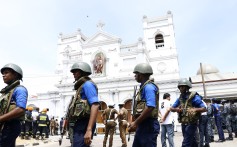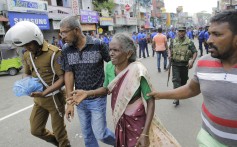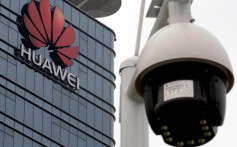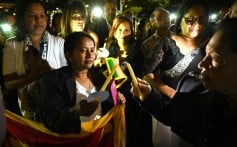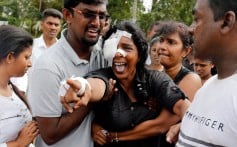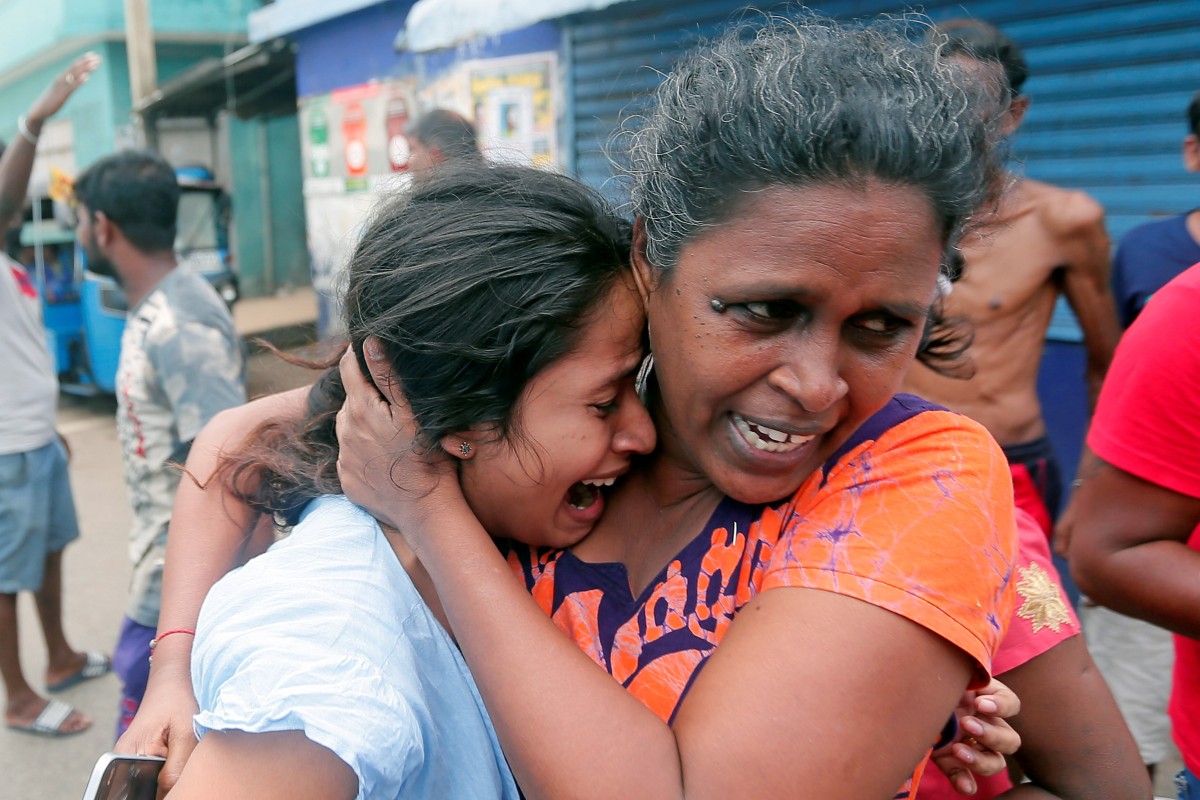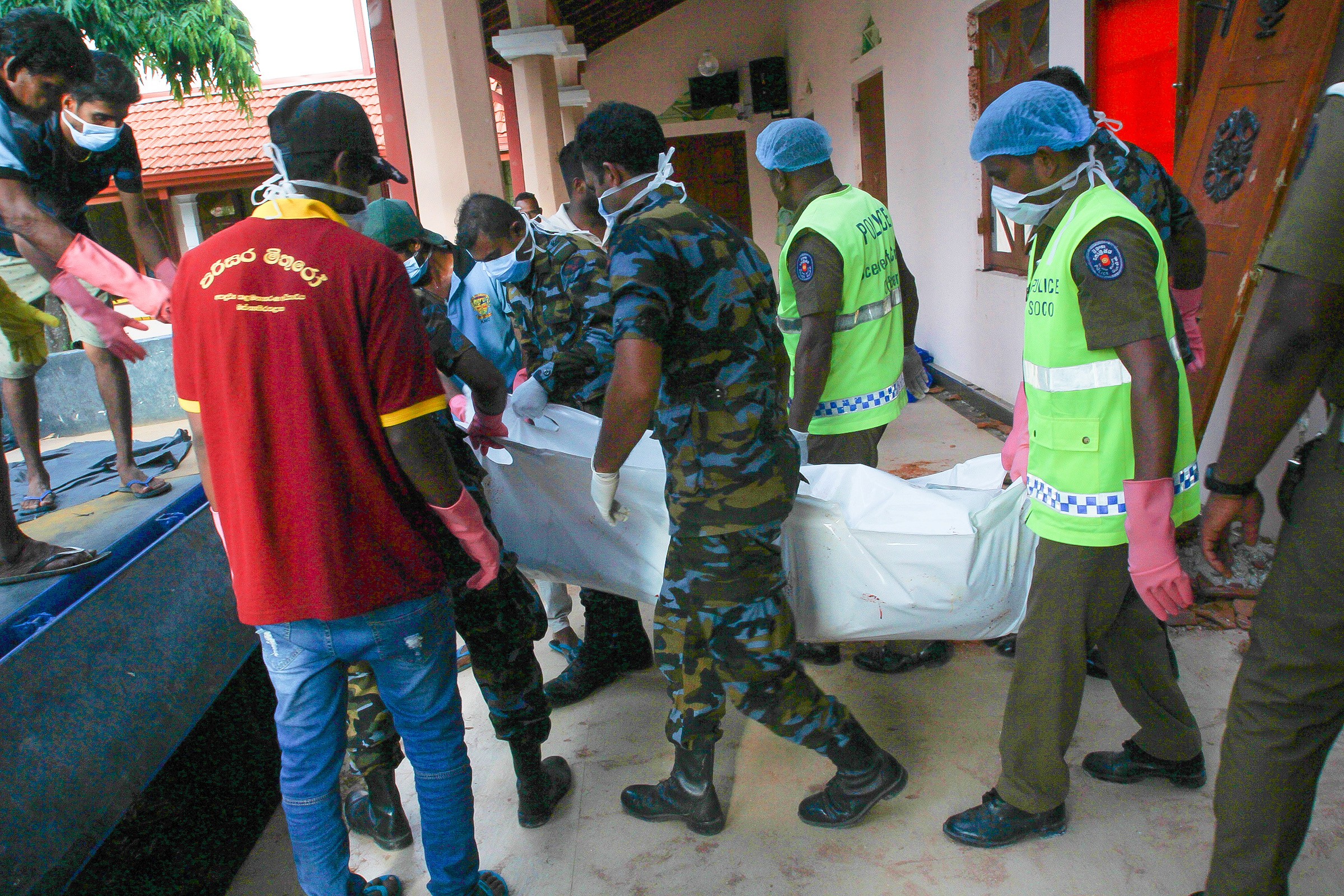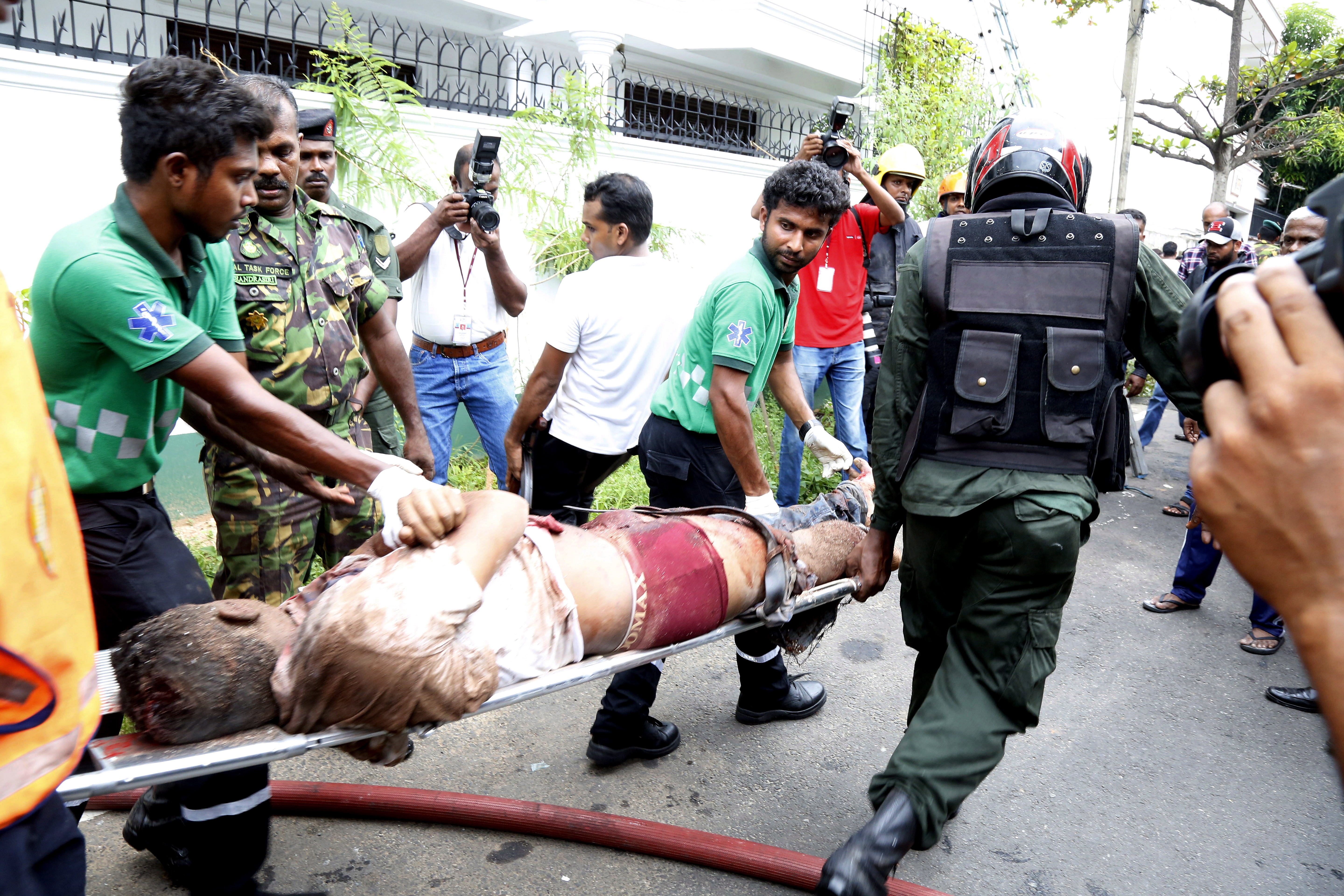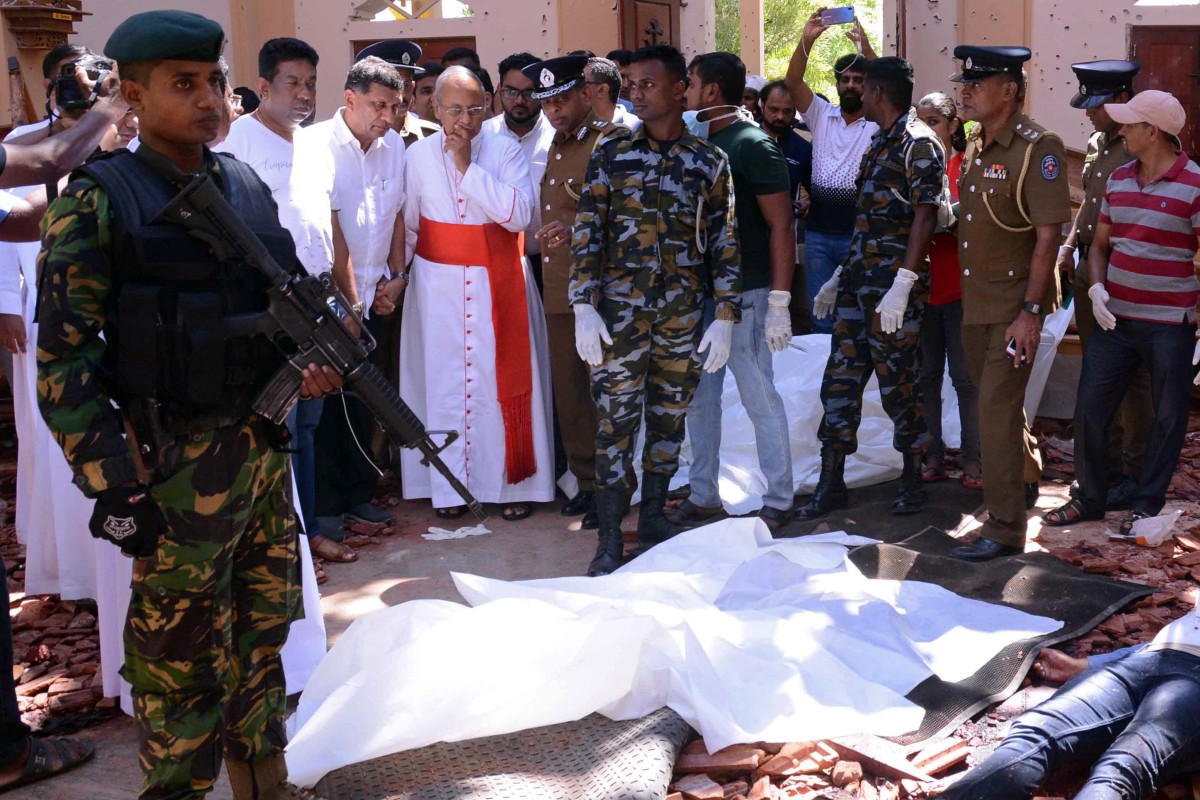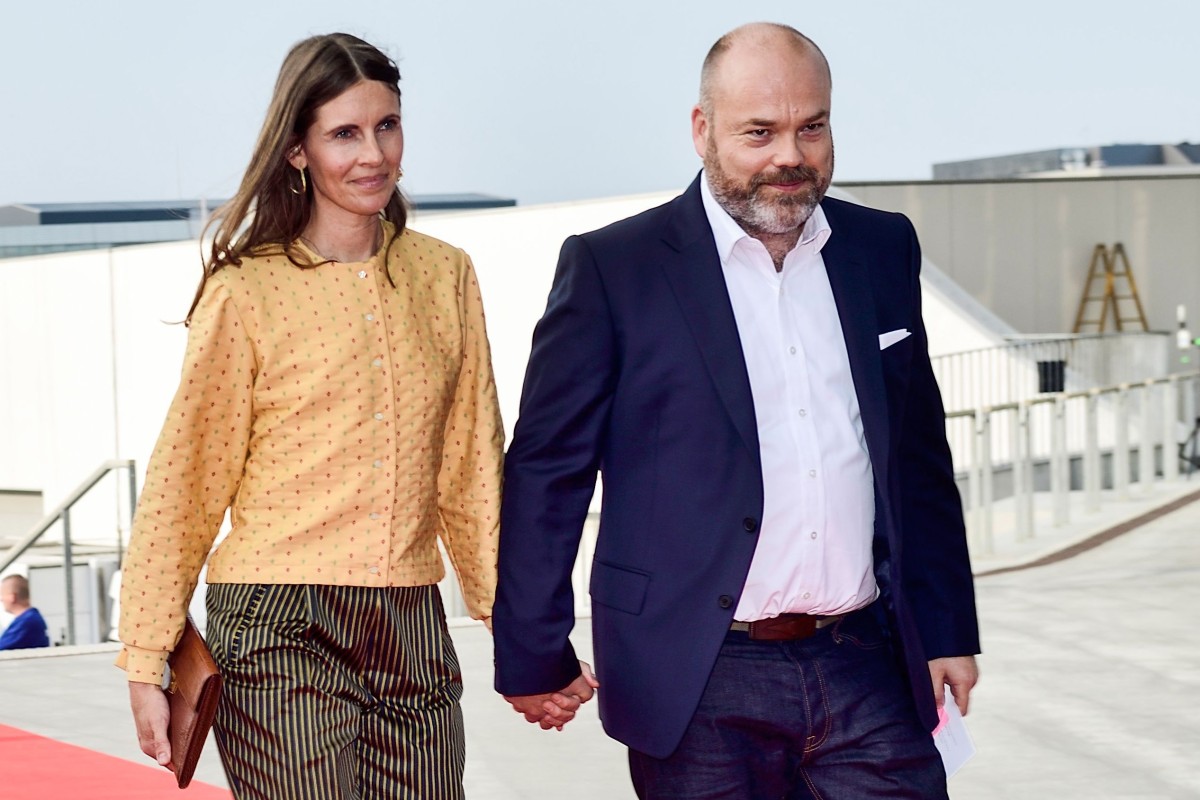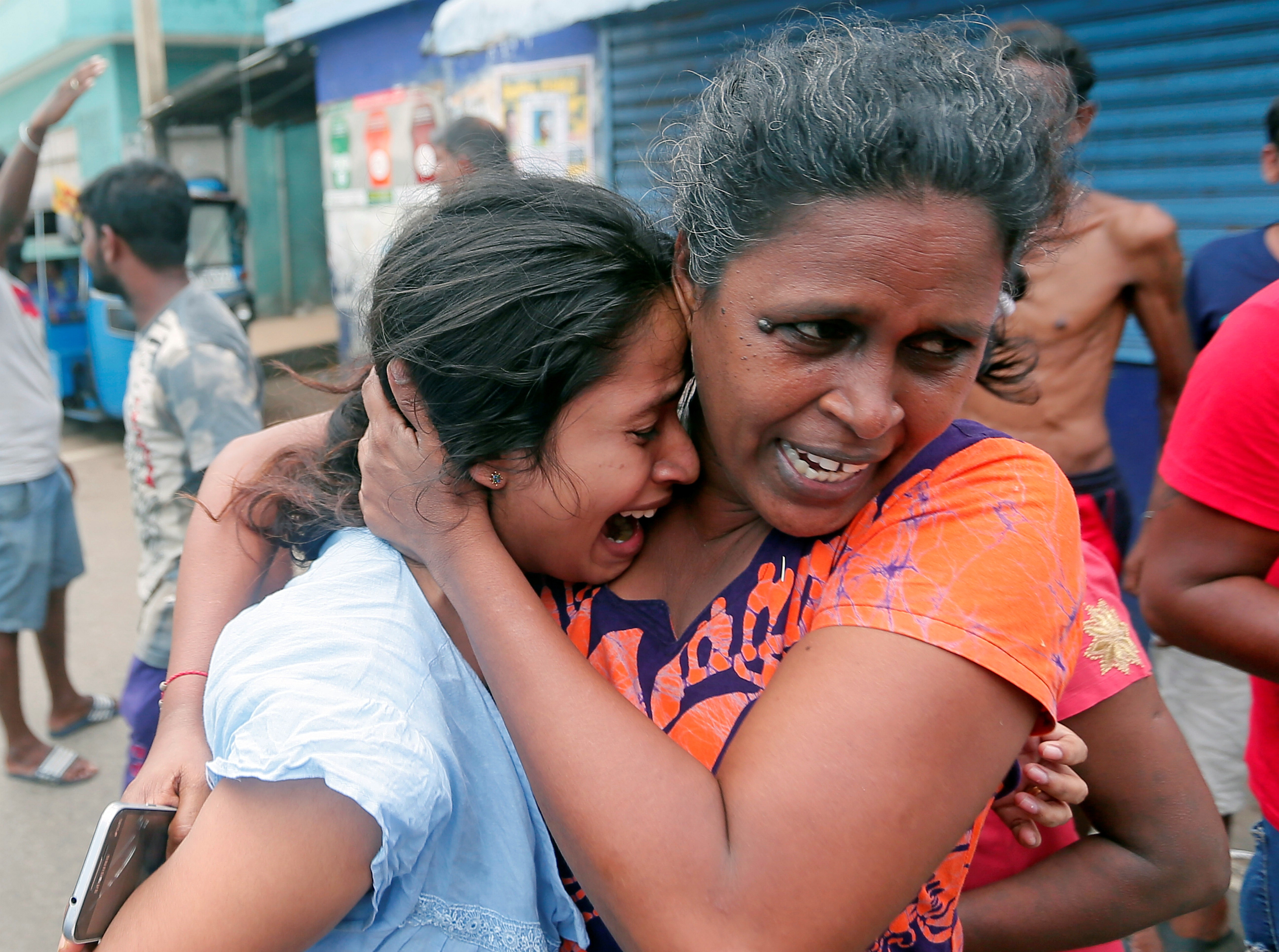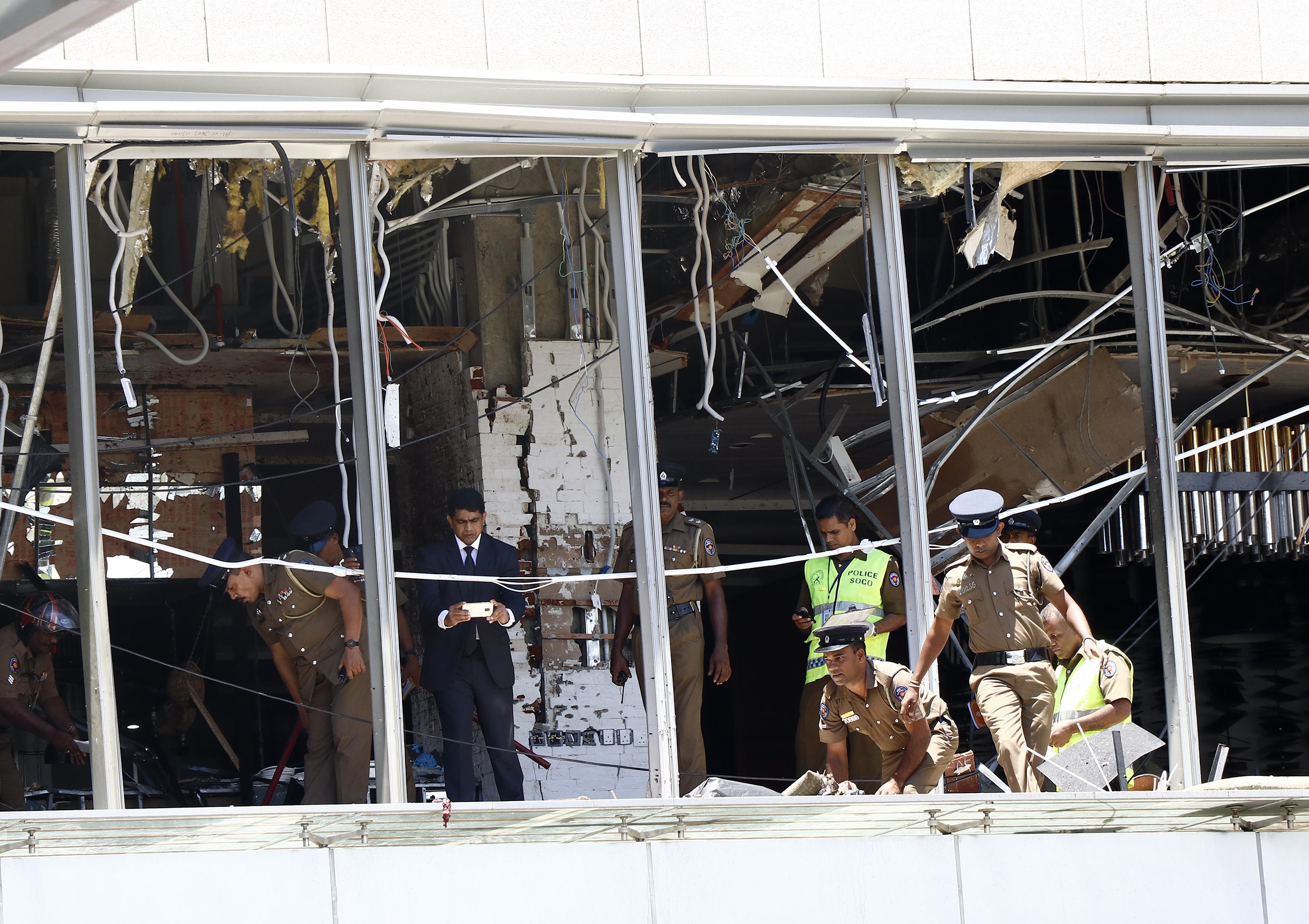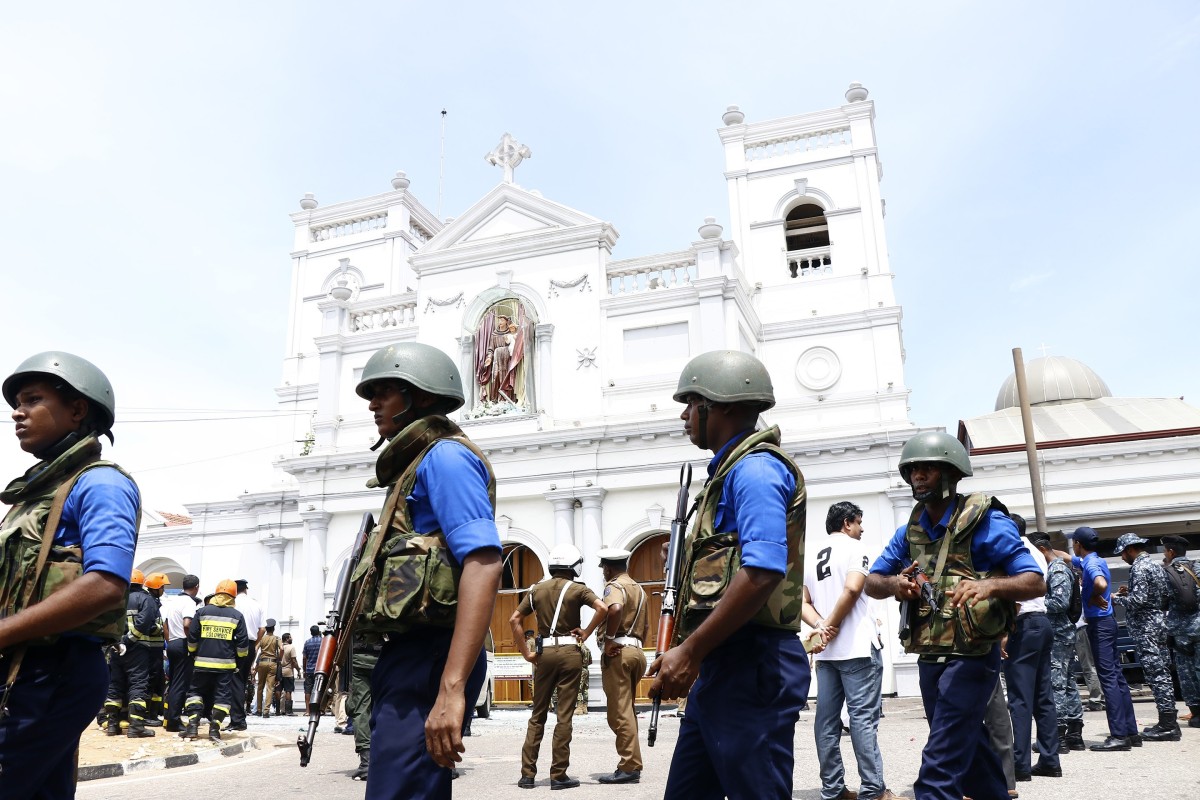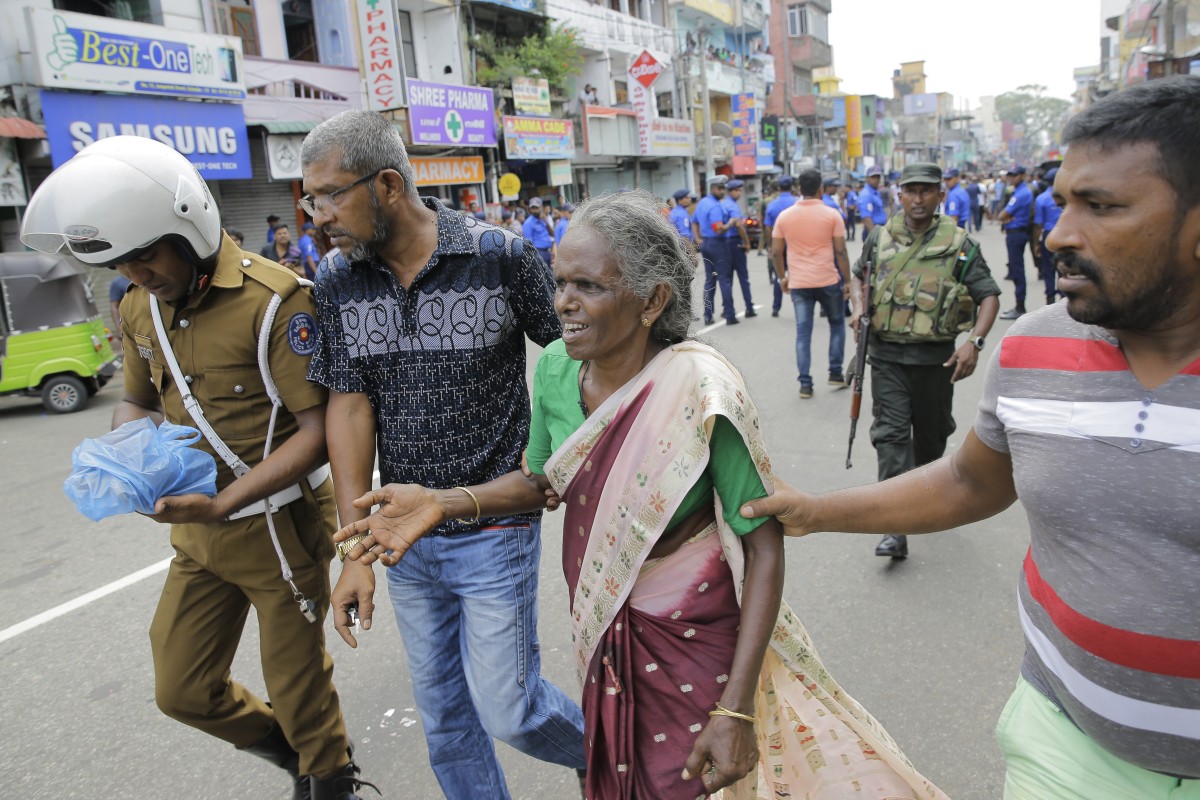Sri Lanka suicide blasts: Islamic extremist group blamed for attack as government admits intelligence failings
The government received several warnings about a terror attack by the domestic Islamic extremist group National Thowfeek Jamaath (NTJ) but did not act on them
A minister said the NTJ was believed to have carried out the attacks with the assistance of ‘an international network’
on Monday remained on lockdown, with the second curfew in force as authorities continued searching for suspects behind a series of suicide blasts that killed 290 people and injured 500 others in Colombo and other areas on Sunday.
No one has claimed responsibility for the blasts, although the government believed a domestic Islamic militant group called the National Thowfeek Jamaath (NTJ) was behind the bombings with the help of an international terror network.
“We do not believe these attacks were carried out by a group of people who were confined to this country,” Health Minister Rajitha Senaratne said. “There was an international network without which these attacks could not have succeeded.”
At least 27 foreigners were among the dead, including a Japanese national, two Australians, five Indians and eight British nationals.
were earlier reported dead, but officials later revised the number to one.

Police arrested 24 suspects for questioning, but have released few details about the detained over fears of stirring ethnic and religious tensions.
International intelligence agencies had warned of the attacks several times from April 4, Senaratne said, but because of political dysfunction within the government, Prime Minister Ranil Wickremesinghe and his Cabinet were kept in the dark about the information.
Telecommunications Minister Harin Fernando on Monday tweeted: “Some intelligence officers were aware of this incidence. Therefore there was a delay in action. Serious action needs to be taken as to why this warning was ignored.”
Lakshman Keerthisinghe, a lawyer and political analyst, said the government was likely “afraid” to apprehend the pro-Muslim extremists who carried out the attack as some of them had connections to the Cabinet.
Earlier on Monday, government forensic crime analyst Ariyananda Welianga said an assessment of the attackers’ body parts collected from the sites showed the blasts were coordinated.
Four of the bombs went off at about the same time, at 8.45am, with two others coming within 20 minutes. The explosions at a fourth hotel and a guest house occurred hours later.
Welianga said seven bombers were involved in the blasts at the Shangri-La Hotel, Cinnamon Grand, Kingsbury Hotel and St Anthony’s Shrine church in Colombo, as well as the St Sebastian’s church Negombo city and the Zion Church in Batticaloa city.
Police said they had found 87 bomb detonators – 12 of them scattered on the ground at a bus station and another 75 in a garbage dump – during raids in Colombo on Monday.
The eight explosions, which occurred mostly in and around Colombo, mark the worst violence that the South Asian island nation has seen since the end of its civil war a decade ago.
A ninth explosion reportedly went off on Monday in a van parked near St Anthony’s Shrine, one of the three churches targeted the previous day, when bomb squad officials tried to defuse it.
President Maithripala Sirisena said a state of emergency would be effective from midnight “to allow the police and the three forces [the army, navy and air force] to ensure public security”.
The government lifted an indefinite curfew ordered on Sunday after the attacks, but a new curfew began running from 8 pm on Monday until 4 am on Tuesday.
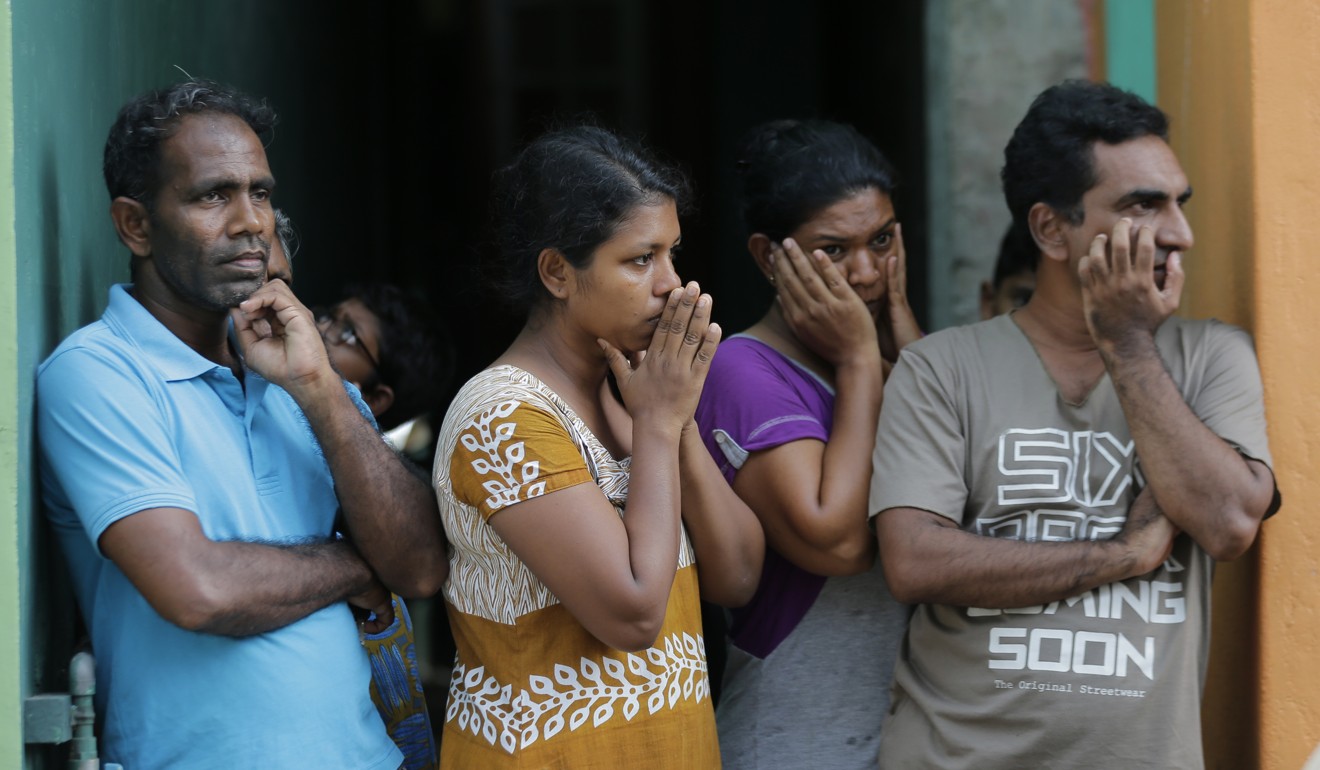
Meanwhile, residents in Colombo were in a state of anguish and devastation, as they struggled to come to terms with the deadly assaults.
Streets were bereft of bustle and restaurants were seeing a fraction of the crowds normally expected on a weekday.
Mariadas, an elderly resident, said he was attending a church service at the St Anthony’s Shrine, when the roof masonry collapsed with a loud bang, killing his son and son-in-law.
“We go to the church for the expiation of sins. We go there for joy and for redemption. But what’s happening in this country when we can’t go there any more?” he questioned, gesturing to the sky. “The church fell upon us.”

Scenes at the National Hospital Colombo were also eerily calm, as many of the victims had lost their lives.
“The accident ward is calm [because] the mortuary is where the patients are,” said a hospital attendant, who saw large numbers of bodies sent there in the morning.
Amid the quiet scenes in the country post-attack, tourists flocked to the main airport as they scrambled to leave Sri Lanka.
Annika Wesche, a 27-year-old law student from Germany, arrived in Colombo on Sunday on the final leg of her three-month visit in the country.
She struggled to get through to family and friends back home after authorities blocked social media platforms like Facebook and WhatsApp to prevent the spread of fake news.
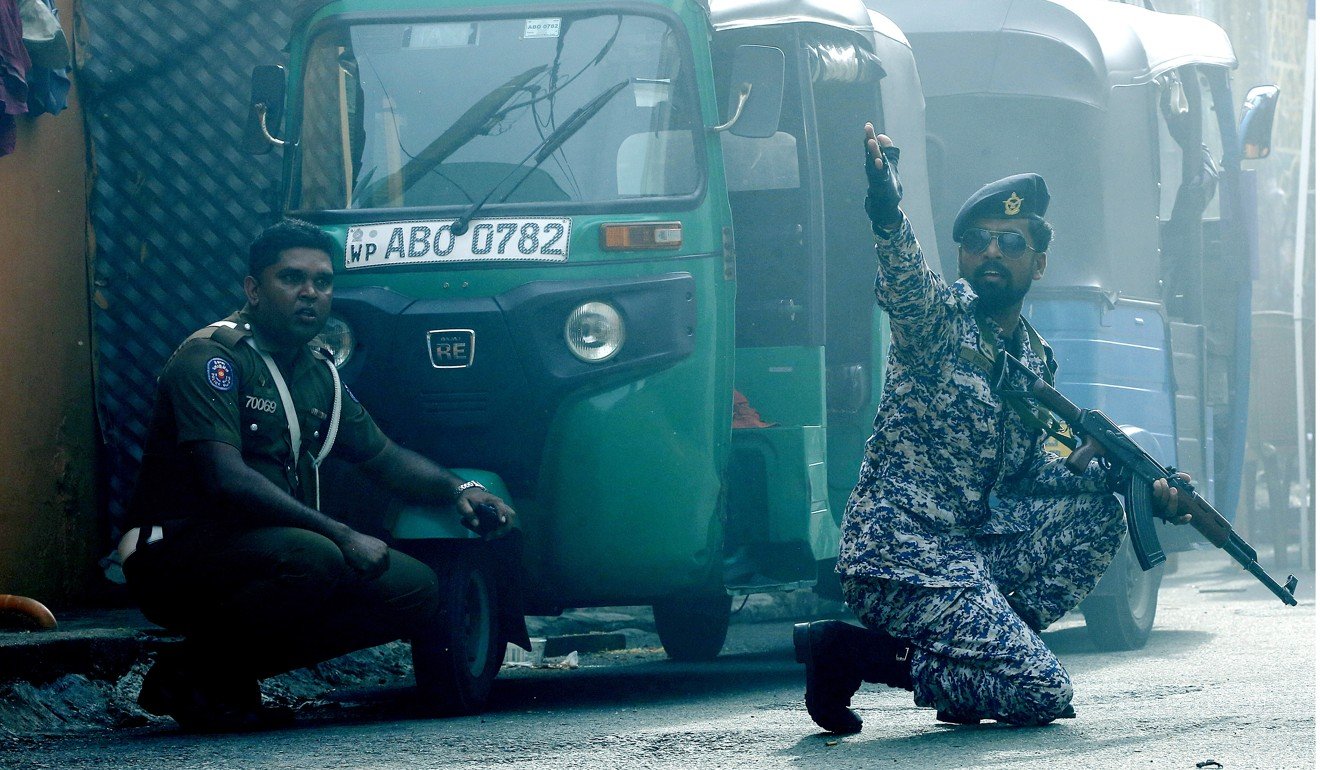
“I’m now worried about going back,” she said, citing reports of a pipe bomb found along the road leading to the international airport. “Will there be flight cancellations?”
Kishu Gomes, chairman of the Sri Lanka Tourism Development Authority, said he could not give an exact count of the number of people leaving, but it could run into the thousands.
Sanath Ukwatte, president The Hotels Association of Sri Lanka, said the Mount Lavinia Hotel, which he owns, has had about 20 per cent of its bookings cancelled, with more expected.
“Everyone is in shock right now,” he said. “This is the first time tourist hotels have been targeted in this manner. Every hotel has increased security.”

The attack is a huge setback for the tourism industry, an economic bright spot for the island nation’s economy, which has struggled to regain its footing following a three-decade civil conflict that ended in 2009 and political turmoil last year. Visitor arrivals have increased more than five times since the war ended.
Sri Lanka was the top travel destination for 2019 in the Lonely Planet’s annual rankings, with tourists attracted by its religious diversity, historic temples, rich wildlife, and growing surf scene.
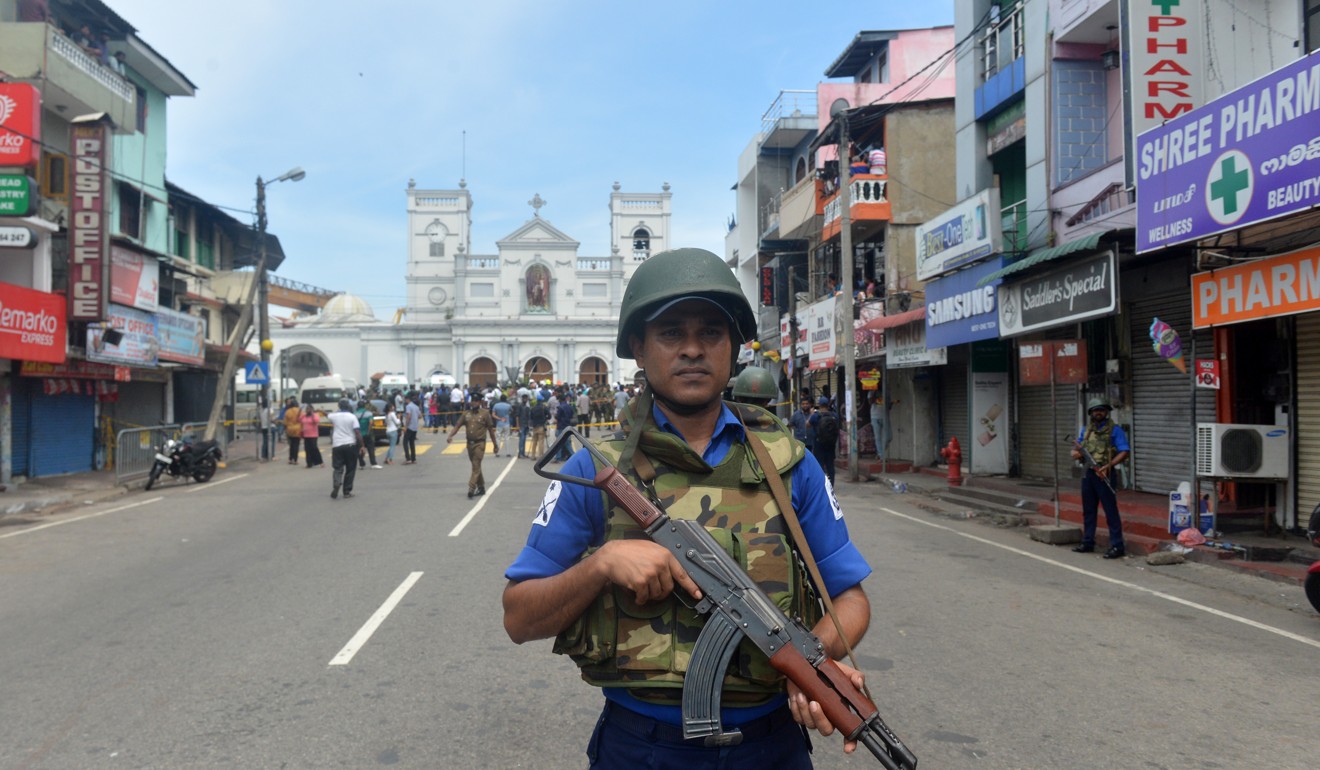
“Even during 26 years of war, we did not experience a calamity like this,” said Hiran Cooray, chairman of Jetwing Symphony, the investment arm of Sri Lankan hotelier Jetwing.
Pronab Sarkar, president of the Indian Association of Tour Operators, predicted a “knee-jerk reaction” among all tourists and relief thereafter.
“Cancellations and change in plans will be visible for the next 15 days and then it should start reviving again,” he said. “The government can’t afford to let that sink again,” he said of Sri Lanka’s rejuvenated tourism sector.
Agence France-Presse, Associated Press, Bloomberg and Reuters all contributed to this story.
‘A river of blood’: Sri Lankan suicide bombers kill at least 290, injure 500 in Easter Sunday blasts
Dozens of foreigners, including Chinese and Japanese, killed in the coordinated bombings across the capital Colombo
Authorities investigate reports of intelligence briefing warning of attacks, as tourists flock to the airport amid fears of an ongoing threat
A local militant group was responsible for a series of Easter Sunday suicide bombings in
that killed at least 290 people and wounded over 500 others, a government official said on Monday.
Health Minister Rajitha Senaratne said seven Sri Lankan bombers from the local National Thowheeth Jama’ath (NTJ) group were linked to the near-simultaneous attacks on three churches and three luxury hotels in and around Colombo.
Senaratne said while the group was domestic, foreign links were suspected in the country’s worst attacks for more than a decade.
Not much is known about the NTJ, a radical group that has been linked to the vandalising of Buddhist statues.
Sri Lankan President Maithripala Sirisena said he would seek foreign assistance to track down international terrorist links.
“The intelligence reports [indicate] that foreign terrorist organisations are behind the local terrorists. Therefore, the president is to seek the assistance of the foreign countries,” he said in a statement.
The president said he would also declare a nationwide emergency that will go into effect at midnight.
Sri Lankan government forensic crime analyst Ariyananda Welianga said an assessment of the attackers’ body parts collected from the scenes showed that the attacks were coordinated suicide bombings.
Four of the bombs went off at roughly the same time, at 8.45am, with two others coming within 20 minutes. The explosions at the fourth hotel and the house occurred hours later in the afternoon.
Welianga said two people were involved in the attack at the Shangri-La Hotel. One bomber each attacked the Cinnamon Grand and Kingsbury hotels and St Anthony’s Shrine in Colombo, St Sebastian’s church in the city of Negombo and Zion Church in the city of Batticaloa.
“Guests who had come for breakfast were lying on the floor, blood all over,” said a Kingsbury Hotel employee. “We just picked up everyone, dead or alive and evacuated them.”
Police said on 24 people had so far been arrested over the attacks. While there had not been any immediate claim of responsibility, documents showed that Sri Lanka’s police chief Pujuth Jayasundara issued an intelligence alert to top officers 10 days ago, warning that suicide bombers planned to hit “prominent churches”.
“A foreign intelligence agency has reported that the NTJ [National Thowheeth Jama’ath] is planning to carry out suicide attacks targeting prominent churches as well as the Indian high commission in Colombo,” the alert said.
The NTJ is a radical Muslim group in Sri Lanka that was linked last year to the vandalisation of Buddhist statues.
Prime Minister Ranil Wickremesinghe acknowledged that “information was there” about possible attacks and that an investigation would look into “why adequate precautions were not taken”.
Telecommunications Minister Harin Fernando tweeted: “Some intelligence officers were aware of this incidence. Therefore there was a delay in action. Serious action needs to be taken as to why this warning was ignored.”
He said his father had even heard of the possibility of an attack and had warned him not to enter popular churches.
Mano Ganeshan, the minister for national integration, said the security officers within his ministry had been warned by their division about the possibility two suicide bombers would target politicians.

Police spokesman Ruwan Gunasekara said the Criminal Investigation Department investigating the blasts will look into the reports.
Sri Lankan authorities also said Monday they had successfully defused another bomb close to Colombo’s main airport.
A police source said a locally manufactured “home-made” pipe bomb had been found late Sunday on a road leading towards the main terminal, exacerbating disruptions at the Bandaranaike International airport.
“It was a crude six-foot pipe bomb that was found by the roadside,” an air force spokesman said. “We have removed it and safely defused it at an air force location.”
In the aftermath of the attacks, Sri Lanka’s government blocked social media access to prevent “wrong information” from spreading in the country of 21 million people. The US State Department issued a revised travel warning that said “terrorist groups” were continuing to plot possible attacks.
“Terrorists may attack with little or no warning,” it said in the revised warning. The warning level was set at two on a scale where four means do not travel.
Possible targets included tourist locations, transportation hubs, shopping malls, hotels, places of worship, airports and other public areas, it said.
Of the 290 who were killed, police said at least 37 were foreigners, including Chinese, Japanese, Indian, Australian and Danish nationals.
Australia’s prime minister on Monday said two Australian citizens died and another two were injured.
Denmark’s richest man Anders Holch Povlsen and his wife lost three of their four children who were on holiday in Sri Lanka.
Two Chinese citizens were killed and another five were seriously injured in the attack. The Chinese Embassy in Sri Lanka had contacted the families of the deceased, People.com.cn reported.
Five other Chinese nationals remained missing. They were students from the Ministry of Natural Resources’ First Institute of Oceanography who were reportedly going to take part in a study in the Indian Ocean.
“It is an annual scientific expedition programme and they were on the way to replace the 10 others who had completed their rotation,” a staff member told the Beijing News. “Some sustained bruises on the leg and one could hardly hear after the blast.”
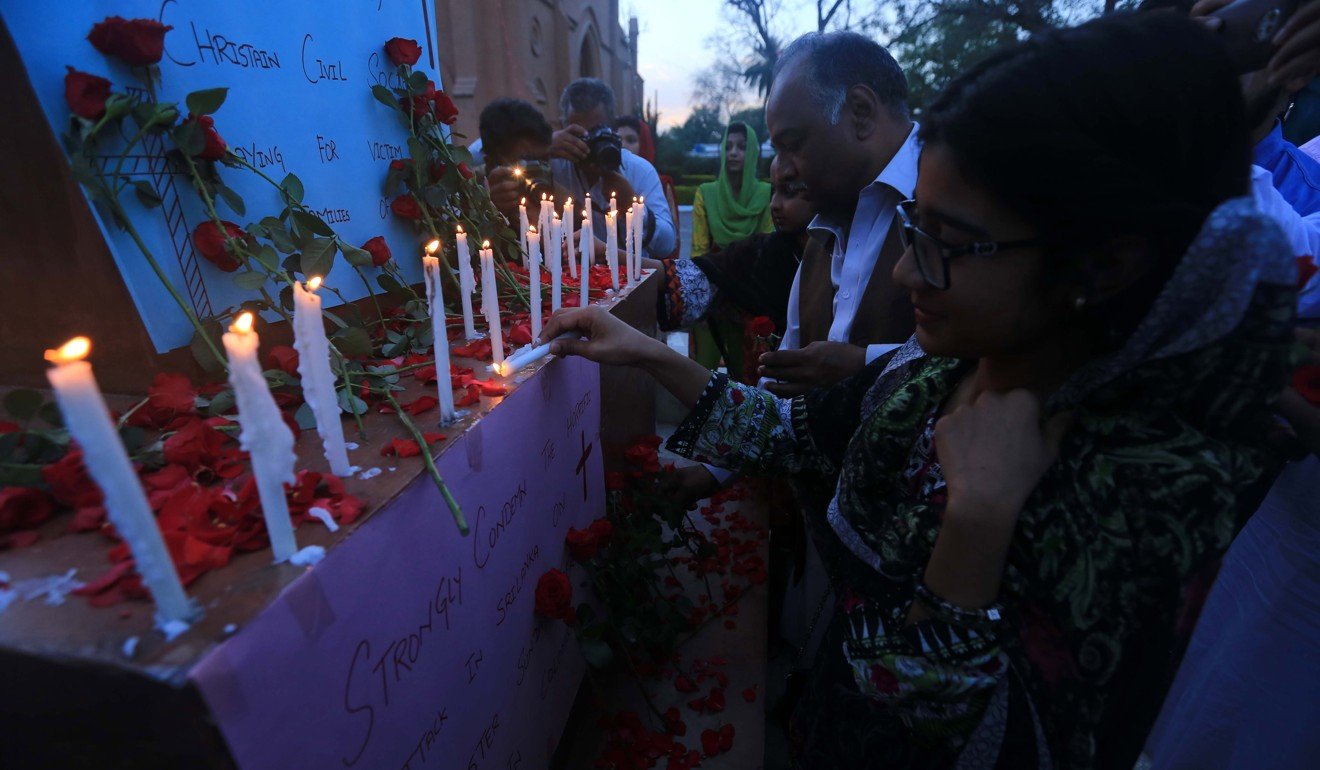
Among the churches targeted was the historic St Anthony’s Shrine, a Catholic Church in Colombo, where the blast blew out much of the roof.
Bodies lay on the ground of the church, covered in patterned scarves and white sheets, some of them stained with blood.
Shattered roof tiles and shards of glass littered the floor, along with chunks of plaster blasted from the walls by the explosion.
Sri Lanka’s Minister of Economic Reforms, Harsha de Silva, described “horrible scenes” at St Anthony’s church. “I saw many body parts strewn all over,” he tweeted.
Witness NA Sumanapala was near the church when the blast happened.
“I ran inside to help. The priest came out and he was covered in blood,” he said. “It was a river of blood.”
A manager at the Cinnamon Grand, near the prime minister’s official residence in Colombo, said a suicide bomber blew himself up at the hotel’s restaurant.
“He came up to the top of the queue and set off the blast,” the manager said.
Prime Minister Ranil Wickremesinghe urged people to “hold our unity as Sri Lankans” and pledged to “wipe out this menace once and for all”.
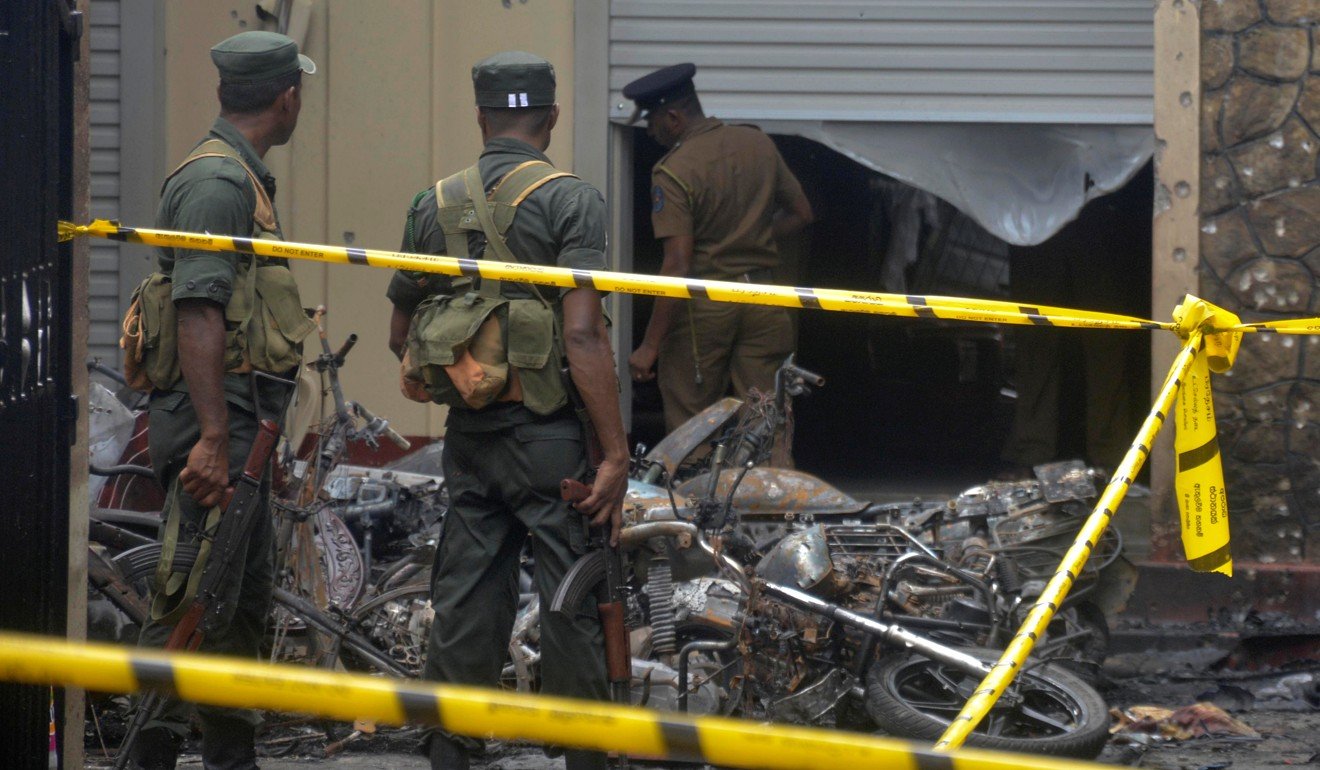
Meanwhile, there were chaotic scenes at Colombo airport as worried travellers who had just arrived in the country formed a huge queue at the only taxi counter that was open, and watched a television screen for updates.
Kishu Gomes, chairman of the Sri Lanka Tourism Development Authority, said holidaymakers were flocking back to the airport, cutting short their vacations in the wake of the blasts.
He could not give an exact count of the number of people leaving, but it could run into the thousands. Tour operators in India, the biggest source market for visitors to Sri Lanka, were also cancelling trips for clients, he said.
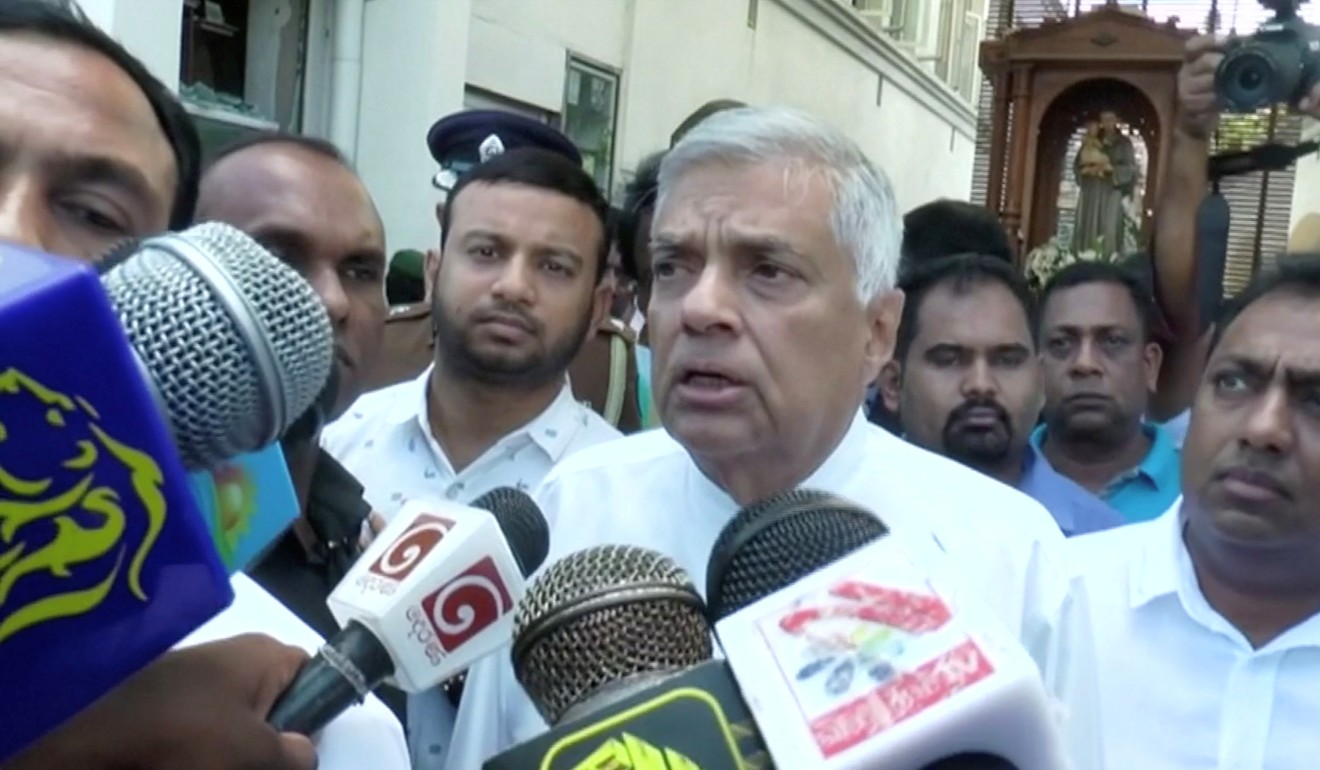
Ethnic and religious violence has plagued Sri Lanka for decades, with a 37-year conflict with Tamil rebels followed by an upswing in recent years in clashes between the Buddhist majority and Muslims.
Catholics make up around 6 per cent of the island nation’s population, which is a patchwork of different religious and ethnic groups dominated by Buddhist Sinhalese.
While there have been attacks on Christians, their community had been left relatively unscathed until now.
Rucki Fernando, a Christian Sri Lankan, said: “We haven’t experienced anything like this in the last 10 years.”
“There is a lot of fear, not just in the Christian community, but among everyone,” he added.
Reporting by Agence France-Presse, Reuters, Associated Press and Bloomberg
Denmark’s richest man, billionaire Anders Holch Povlsen, loses three children in Sri Lanka blasts
Holch Povlsen, whose holdings include the online retailer Asos, his wife Anne and their four children were on holiday at the time of the attacks
Local officials say more than 30 foreign tourists from at least 11 countries were among the nearly 300 who died in the blasts
Danish billionaire Anders Holch Povlsen lost three of his four children in the Easter Sunday attacks in Sri Lanka, a spokesman for his clothing retail group Bestseller said on Monday.
Danish media have reported that Holch Povlsen, his wife Anne and their four children were in Sri Lanka on holiday when the attacks struck churches and luxury hotels, killing nearly 300 people.
“I can confirm that three children have been killed,” Jesper Stubkier, the communications manager for Bestseller, said in a statement.
“We ask you to respect the privacy of the family and we therefore have no further comments.”
Considered Denmark’s richest man, Holch Povlsen, 46, is the main shareholder in the online fashion retailer Asos as well as the owner of Bestseller.
He inherited Bestseller from his parents, who founded the firm in 1975.
The group, which includes brands such as Vero Moda, Only and Jack & Jones, has more than 3,000 stores in 70 countries.
In addition to the majority stake in Britain-based Asos, Holch Povlsen also owns an interest in its German rival Zalando.
The billionaire also describes himself as “one of Scotland’s largest landowners” on the website of Wildland, the company he uses to buy and preserve Scottish property.
“We wish to restore our parts of the (Scotland) Highlands to their former magnificent natural state and repair the harm that man has inflicted on them,” Holch Povlsen and his wife say on the website.
“There are many vulnerable properties across all of the holdings that we have the wonderful and privileged opportunity to rehabilitate and restore to life.”
Sri Lankan officials said on Monday they believe that the local Islamist extremist group National Thowfeek Jamaath (NTJ) was behind the attacks.
The vast majority of the victims were believed to be Sri Lankan citizens, many of the members of the island nation’s Christian minority. Names of many victims and other details on their lives were slow to come in and difficult to report, in part because Sri Lankan authorities blocked most social media after the blasts.
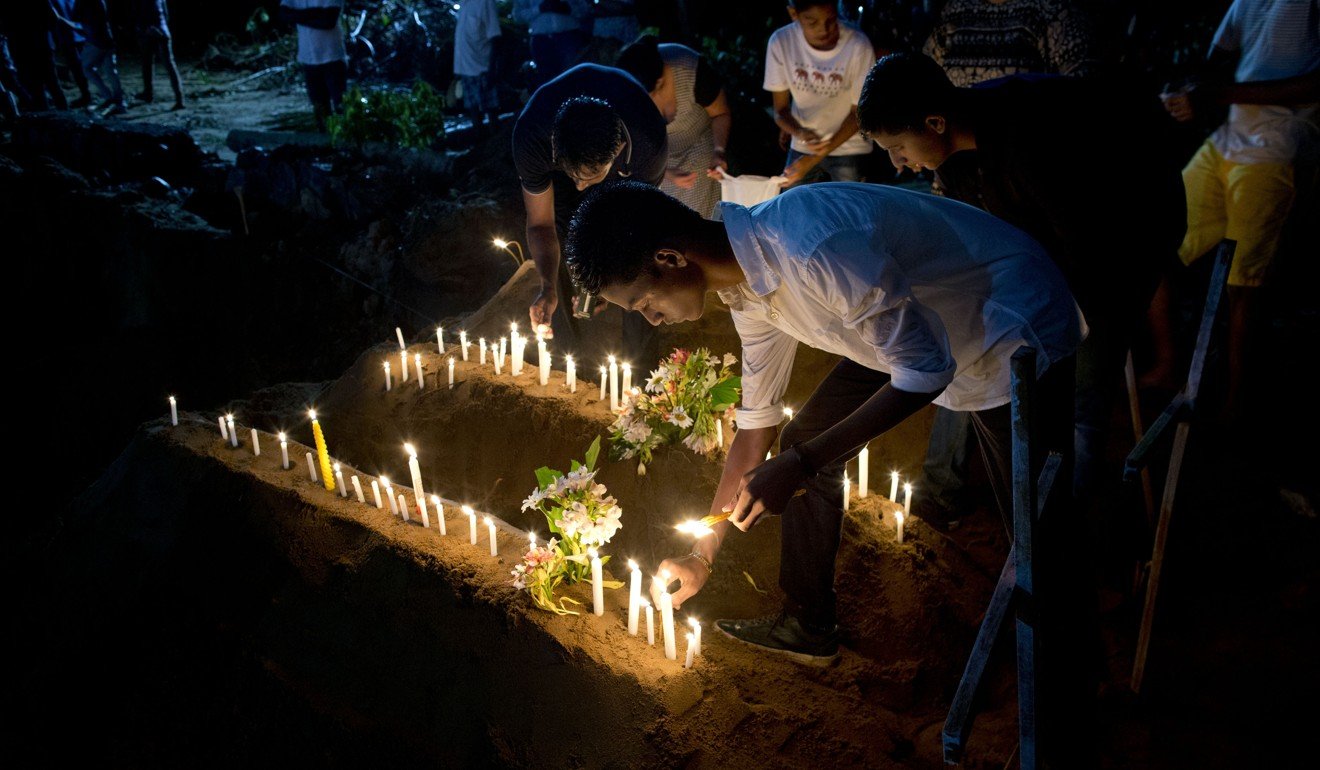
Local officials say that more than 30 foreign tourists, from at least 11 countries, died in the attacks. These include at least eight British citizens, eight Indian nationals, four from Spain, two Australians, four Americans, one Chinese citizen and two Swiss nationals.
The Netherlands, Japan and Portugal have also confirmed their nationals were among the dead.
Additional reporting by Associated Press
Sri Lanka bombings: eight arrests after eight explosions kill 207, injure hundreds in bloody Easter Sunday attacks
Eighth blast said to be a suicide bombing in a home that was being searched by police
Sri Lanka’s most senior Catholic figure called on the government to find the attackers and ‘punish them mercilessly’
Sri Lanka was locked down under a nationwide curfew yesterday as authorities launched a massive security operation following a wave of coordinated bombings at churches and hotels that left more than 200 people dead and hundreds injured.
Prime Minister Ranil Wickremesinghe condemned the attacks – which also killed dozens of foreigners, including two mainland Chinese.
His government shut down social media networks in an attempt to clamp down on the spread of misinformation, while some officials admitted they had no idea who was behind the devastation – the worst the country had seen since the civil war that ended in 2009.
The first six explosions were reported within a short period in the morning just as churches were beginning their Easter Sunday services and hotel guests ate breakfast.
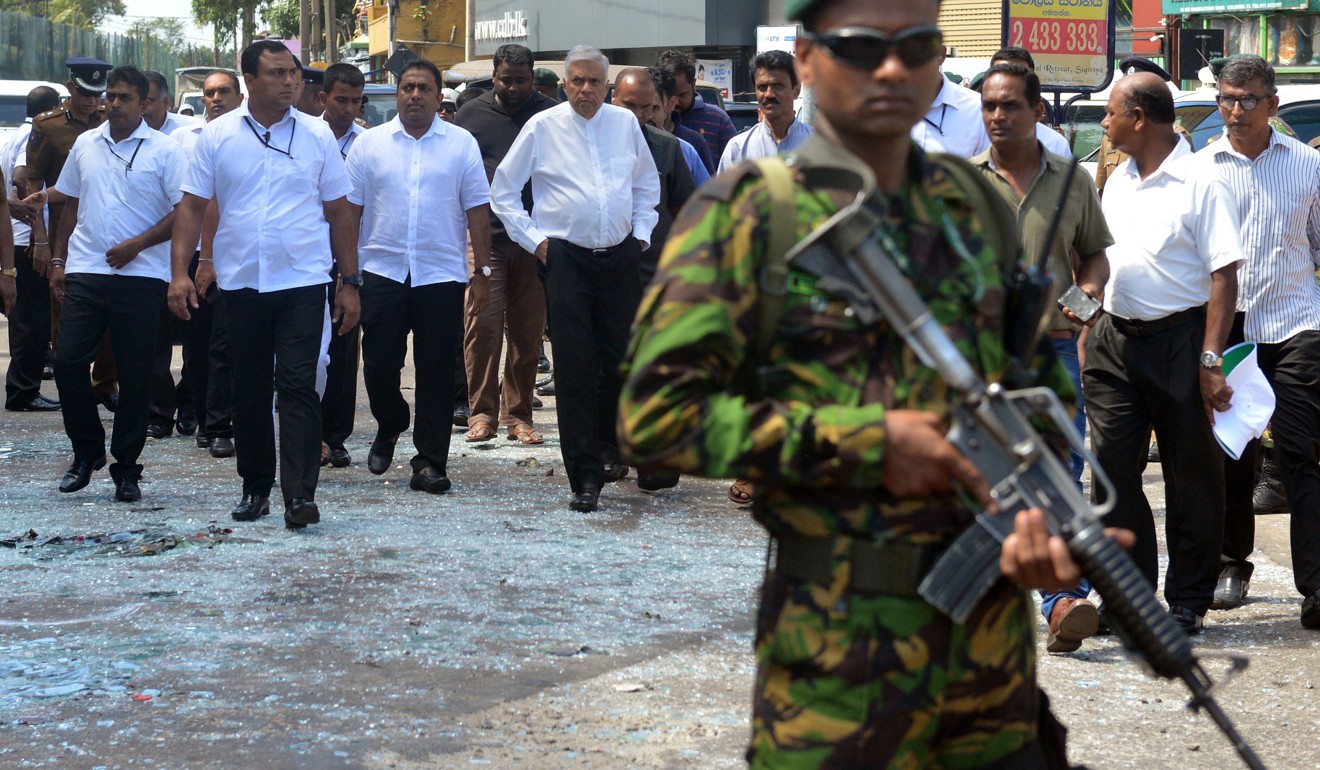
They were followed by two blasts about two hours later – one near a zoo and another in suburban Colombo.
One of the initial explosions in the capital Colombo was at St Anthony’s Shrine, a Catholic church in Kochchikade – a popular tourist spot.
Police spokesman Ruwan Gunasekera said the death toll was at least 207, with more than 450 people wounded. Eight people had been arrested.
Ravinatha Aryasinha, secretary to the foreign ministry, told reporters there were 27 bodies of suspected foreign nationals in the Colombo National Hospital.
Hospital sources said British, Dutch and American citizens had been killed, with Britons and Japanese also injured. Beijing media reported two Chinese citizens were among the dead.
Sri Lanka’s Minister of Economic Reforms and Public Distribution, Harsha de Silva, said he had been to two of the attacked hotels and was at the scene at St Anthony’s, where he described “horrible scenes”.
“I saw many body parts strewn all over,” he tweeted, adding that there were “many casualties including foreigners”.
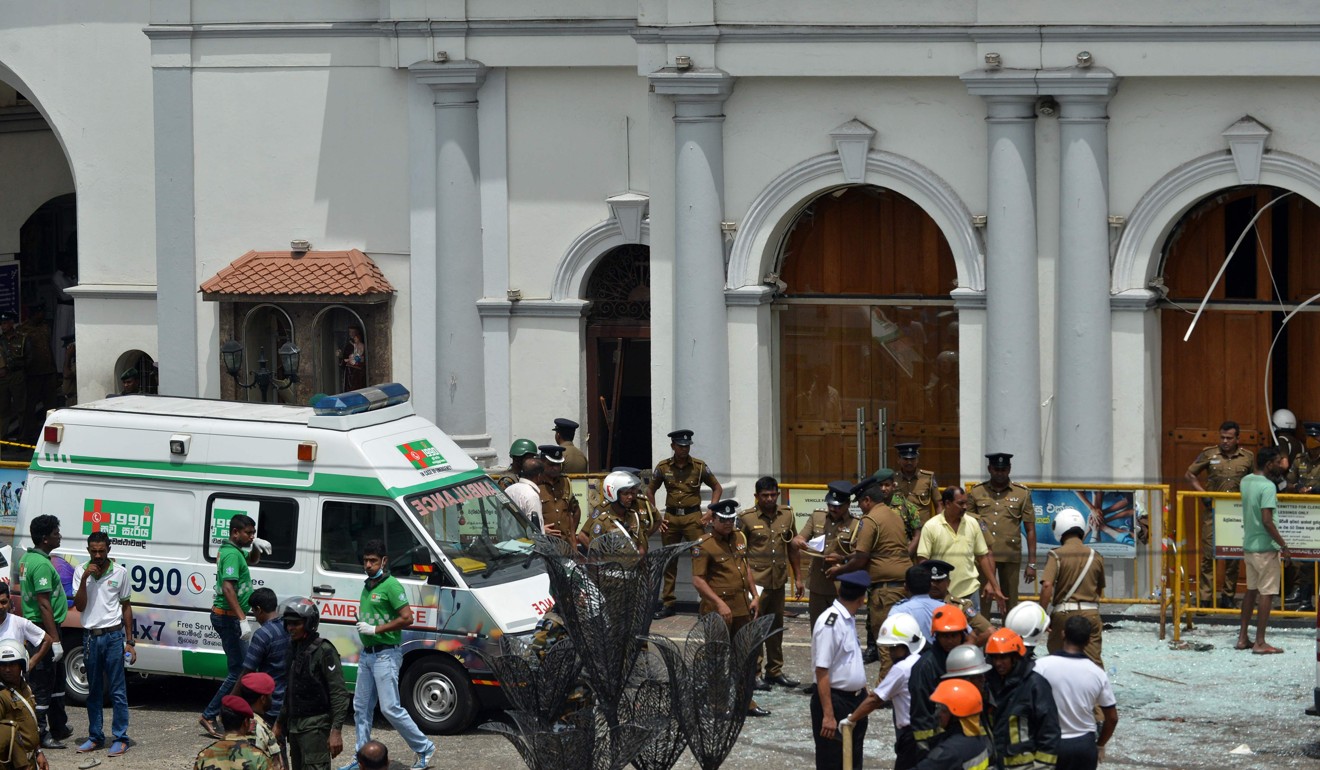
There were no immediate claims of responsibility for the blasts, but documents seen by AFP show that Sri Lanka’s police chief Pujuth Jayasundara issued an intelligence alert to top officers 10 days ago, warning that suicide bombers planned to hit “prominent churches”.
“A foreign intelligence agency has reported that the NTJ [National Thowheeth Jama’ath] is planning to carry out suicide attacks targeting prominent churches as well as the Indian high commission in Colombo,” the alert said. The NTJ is a radical Muslim group in Sri Lanka that was linked last year to the vandalisation of Buddhist statues.
The first blast was reported at St Anthony’s, followed by a second deadly explosion at St Sebastian’s in Negombo.
Witnesses at St Anthony’s saw bodies lying on the floor, some draped with scarves and clothes.
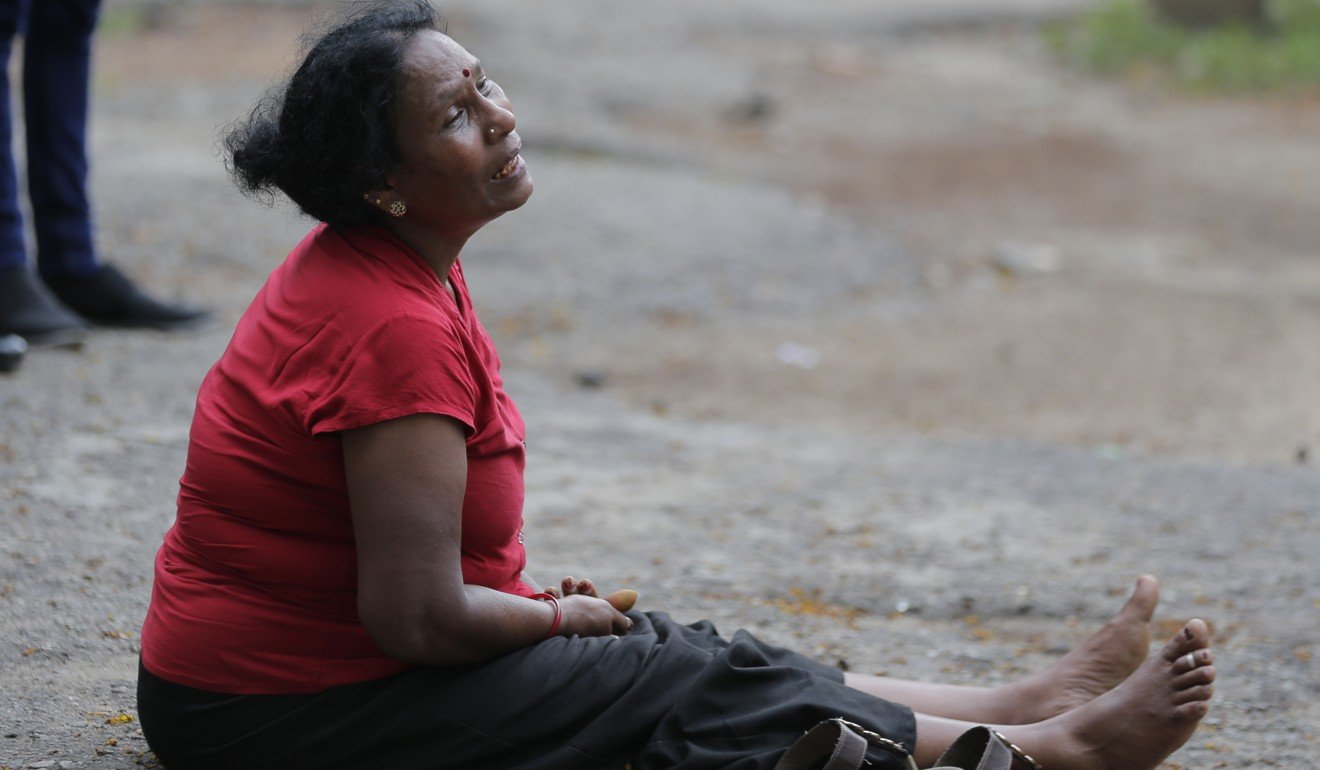
Much of the church roof was blown out in the explosion, with roof tiles, glass and splintered wood littering the floor along with pools of blood. N. A. Sumanapala was at his shop near the church when the blast happened. “I ran inside to help. The priest came out and he was covered in blood,” he said.
Soon after, police confirmed a third church in the east-coast town of Batticaloa had been hit, along with three high-end hotels in the capital – the Cinnamon Grand, the Shangri-La and the Kingsbury.
Later in the afternoon, two died in a strike at the Tropical Inn hotel in the south of Colombo, while a police source said a suicide bomber killed three officers in the suburb of Dematagoda in the north of the capital.
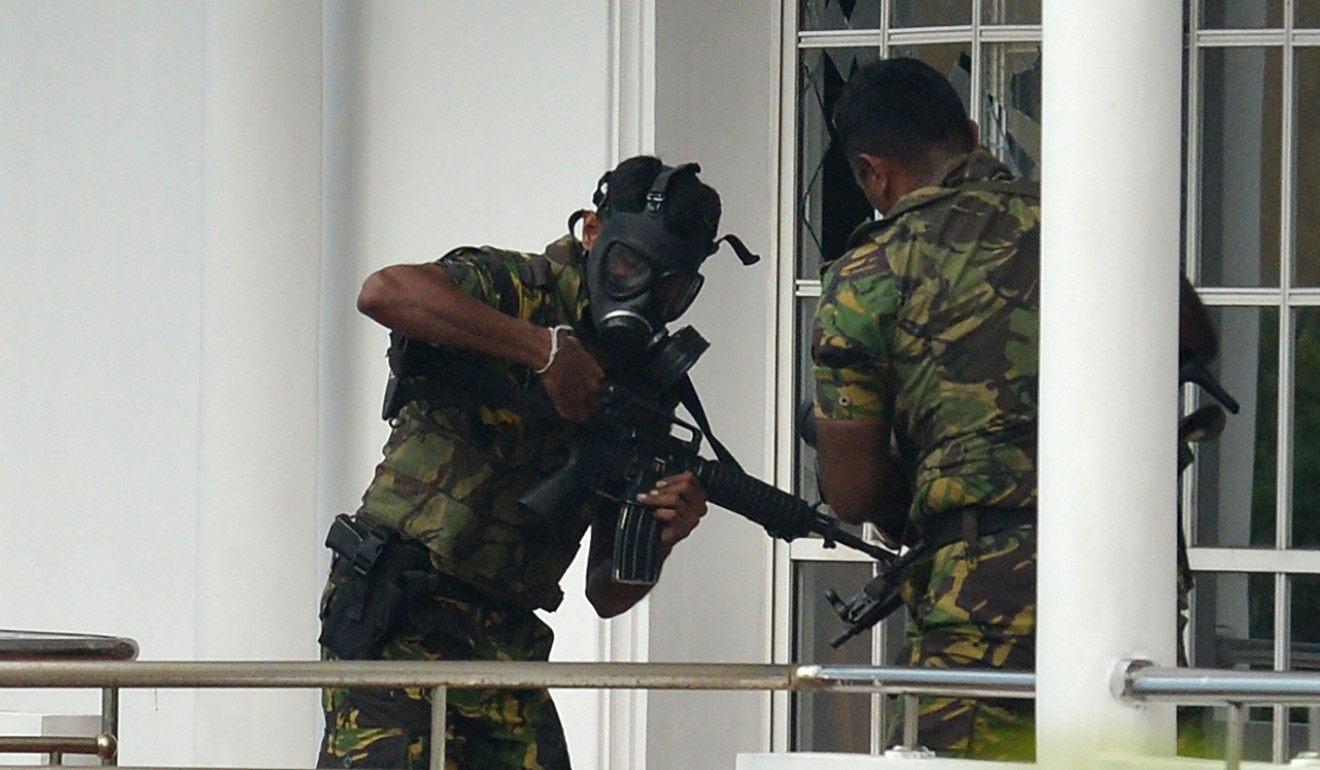
President Maithripala Sirisena said he was shocked by the explosions and appealed for calm.
On Twitter, Wickremesinghe – who visited St Anthony’s Shrine late yesterday – wrote: “I strongly condemn the cowardly attacks on our people today. I call upon all Sri Lankans during this tragic time to remain united and strong.”
United States President Donald Trump tweeted his condolences on the “horrible terrorist attacks”, and Pope Francis in his Easter address at the Vatican spoke of his “affectionate closeness with the Christian community, attacked while it was at prayer”.
Embassies in Colombo warned their citizens to shelter in place, and Sri Lankan Airlines told customers to arrive at the airport four hours ahead of flights because of ramped-up security.
Agence France-Presse, Reuters, The Washington Post
Two Chinese nationals reported dead in Sri Lanka Easter Sunday bombings that killed scores of people, but Hong Kong tour groups and flight crews are safe
Deaths reported by state-run newspaper China Daily. It is unclear if the deceased were among the four Chinese nationals earlier reported as hospitalised
At least 22 Hong Kong tourists plus Cathay Pacific crew confirmed safe
Two mainland Chinese national were among more than 200 people reported killed in deadly Easter Sunday terror attacks across Sri Lanka.
More than 20 Hong Kong members of a tour group, plus a number of Cathay Pacific pilots and cabin crew, have all been accounted for and are safe after multiple bomb blasts across at least eight locations, in churches and popular hotels frequented by foreign visitors.
The Travel Industry Council, which regulates and oversees package holidays in Hong Kong, said it had two tour groups in Colombo, and a total of 22 people were reported safe.
The Hong Kong Immigration Department said it had not received any requests for help from Hong Kong tourists in the aftermath of the deadly bombings, which targeted three churches and three hotels popular with foreign visitors.
The Chinese Embassy in Sri Lanka had earlier said four Chinese nationals were hospitalised and in a stable condition, suffering from undisclosed injuries sustained in the explosions in Colombo.
State-run newspaper China Daily said that two Chinese nationals were dead. It is unclear if the deceased were among those reported injured earlier.
The Chinese embassy activated its emergency response plan to the bombings and was checking the locations and conditions of Chinese nationals, the statement said.
China is the second biggest source of tourists for Sri Lanka. Last year, about 265,000 visitors came from the mainland, or about 11.5 per cent of total tourists, according to the Sri Lankan Tourism Development Authority. A breakdown of tourist numbers for Hong Kong was not available.
Cathay Pacific flew 58,427 passengers into the country in 2017, according to the Sri Lankan tourist board.
Local television footage showed devastation across the country and at the Cinnamon Grand, Shangri-La and Kingsbury hotels in Colombo.
Cathay Pacific aircrew stays at the nearby Movenpick Colombo hotel.
Hong Kong authorities said they had not received requests for help from citizens through its special hotline set up to handle overseas events, such as natural disasters or terror attacks.
“[The] Hong Kong Immigration Department has not received a request for help,” a spokesman for the Immigration Department said.
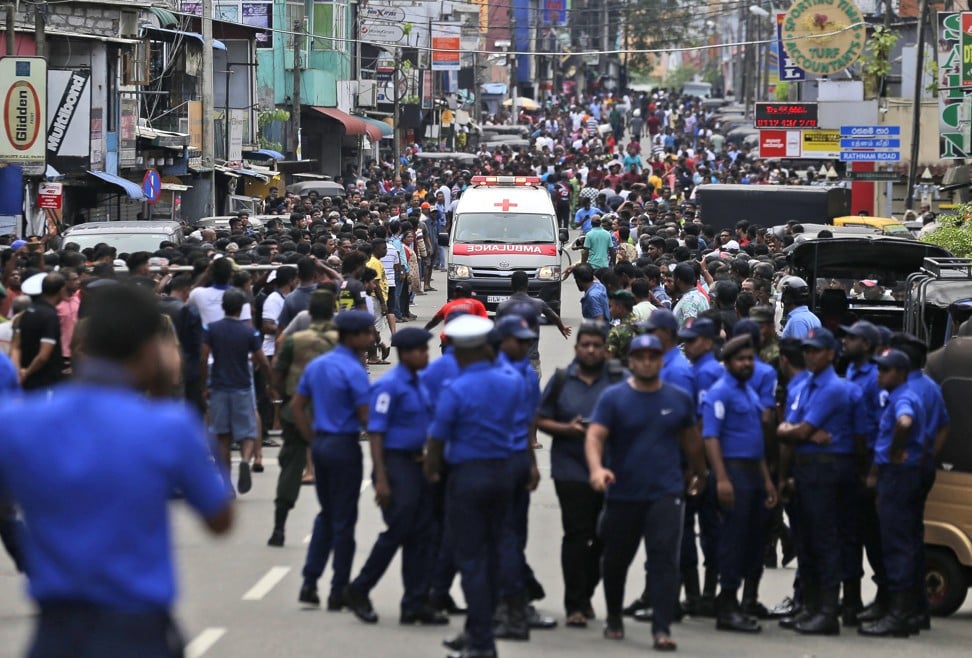
Cathay Pacific Airways, which operates a daily service between Hong Kong and the capital Colombo, offered condolence over the attacks.
“All overnighting crew in Colombo have been accounted for and are safe. Safety is in the consideration of everything we do and we will watch the situation closely,” an airline spokeswoman said.
The company issued special ticketing arrangements for passengers travelling up to April 23, and has offered to postpone or divert to an alternative destination for free for travel on or before May 10. Travellers can also cancel tickets and get a refund, but fees and charges would apply.
Sri Lanka, home to 21.5 million people, was plunged back into chaos on Sunday after a near decade of peace following a long-running civil war.
The island nation is popular with foreign visitors for its balmy climate, golden sandy beaches and countryside tea plantations.
The country was destabilised last year after President Maithripala Sirisena sacked his prime minister, triggering political turmoil and denting tourism numbers.
Additional reporting by Zhou Xin


